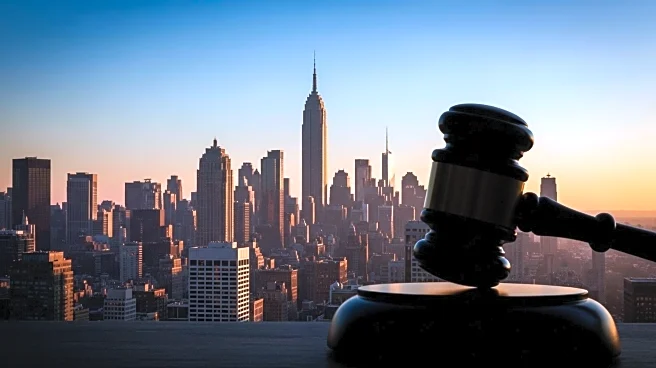What's Happening?
Chicago Mayor Brandon Johnson has signed an executive order to counter President Trump's immigration crackdown, preventing local police from collaborating with federal authorities on immigration enforcement. The order restricts police activities such as patrols, traffic stops, and checkpoints, and prohibits officers from wearing face coverings to conceal their identities. Johnson has criticized the president's actions as unconstitutional and reckless, while the White House defends the crackdown as necessary for crime reduction. The move reflects growing resistance to federal immigration policies in major cities.
Why It's Important?
The executive order represents a significant challenge to federal authority, highlighting tensions between local and national governance on immigration issues. Chicago's stance may inspire other cities to adopt similar measures, potentially leading to a broader movement against federal immigration enforcement. The situation underscores the complexities of immigration policy and the balance of power between different levels of government. The mayor's actions could influence public opinion and policy debates on immigration, affecting communities across the country.
What's Next?
The conflict between Chicago and the federal government may escalate, with potential legal challenges and political repercussions. Other cities may follow Chicago's lead, increasing pressure on the administration to reconsider its immigration policies. The situation could lead to further debates on the role of local governments in shaping immigration enforcement and protecting civil liberties. The outcome remains uncertain, with potential developments in legal proceedings and policy adjustments.
Beyond the Headlines
The executive order raises ethical questions about the balance between national security and individual rights. The situation highlights the importance of local governance in protecting community interests and the potential impact of grassroots resistance on federal policies. Long-term implications include potential shifts in immigration enforcement strategies and increased advocacy for civil liberties. The conflict may also influence public perceptions of the administration's actions and the role of local leaders in shaping national policy.










